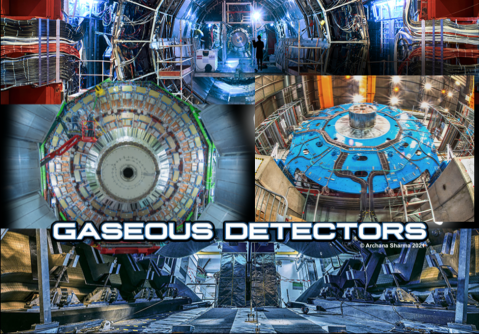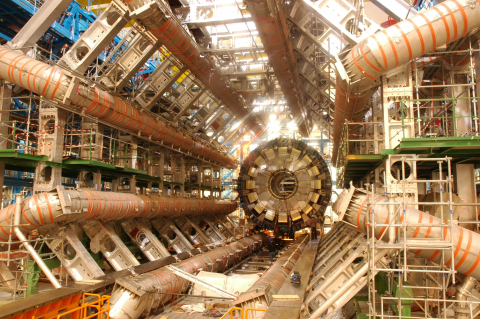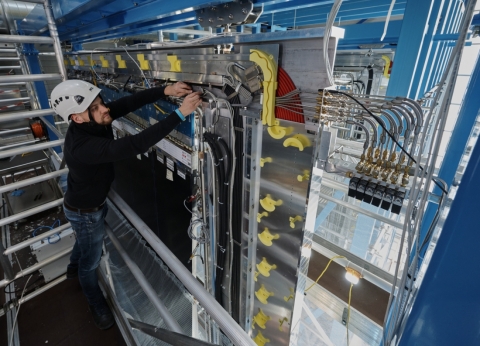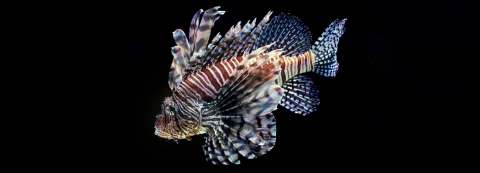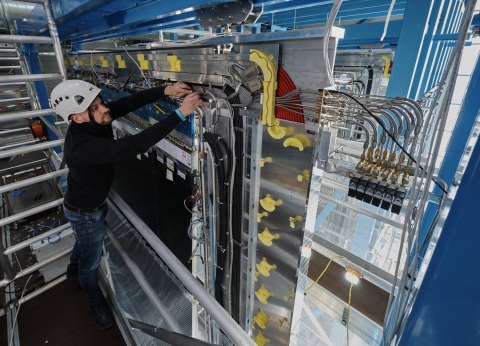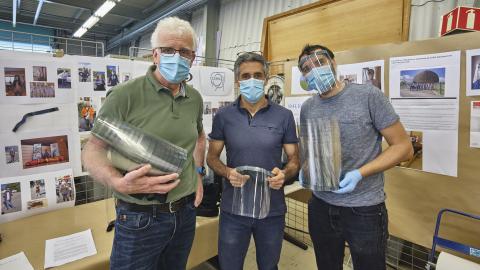DT
Designing gas transport parameters for future HEP experiments
Fig. 1 Large experimental systems at LHC, comprising various gaseous detectors covering thousands of m2, providing tracking and triggering for muons. Given their large areas and cost effectiveness, particle physics experiments rely heavily on…
Read moreMighty magnets for particle detectors
The ATLAS Magnet Team, part of the EP-ADO-SO section, has the principal responsibility for the maintenance and operation of the ATLAS Superconducting Magnets. This effort is supported by a large number of colleagues, in particular from EP-DT, TE-CRG…
Read moreDT group publishes 2020 annual report
Last week, CERN's EP-DT group published their annual report for 2020; a detailed accound of the group activities at CERN conducted over the year in collaboration with the LHC and non-LHC experimental groups along with their academic and…
Read moreThe Curious Cryogenic Fish
The idea of the Curious Cryogenic Fish dates back to 2017. While observing the complex detectors and instrumentation being assembled for the ProtoDUNE experiments at the CERN Neutrino Platform, I started thinking that it would have been great to…
Read moreDT group publishes annual report
The mandate of the Detector Technologies (DT) group in the Experimental Physics department covers development, construction, operation and maintenance of particle detectors for the experiments at CERN. Recently,…
Read moreFace-Shield Production in EP-DT
With the COVID-19 pandemic, all our lives and routines have changed, at both the personal and professional level. Worklife at CERN has been impacted by an important lockdown, where we all had to face new challenges in terms of work reorganization.…
Read moreEP launches new R&D programme on Detector Technologies
Progress in fundamental physics calls for pushing the current state-of-the-art for detectors, and developing new technologies that would boost the efficiency while reducing the cost and the environmental impact of future experiments. For future…
Read moreUpgrade of the EP Irradiation Facilities: The Gamma Irradiation Facility GIF++
In the spirit of the ongoing LS2, the time without particle beams is currently used to significantly upgrade the two CERN Irradiation facilities run by EP-DT, namely IRRAD and GIF++. Both facilities deliver essential services to the…
Read moreEP launches new R&D programme for detector technologies
Progress in fundamental physics calls for pushing the current state-of-the-art for detectors, and developing new technologies that would boost the efficiency while reducing the cost and the environmental impact of future experiments. For future…
Read moreMachine learning for new Detector Technologies
I have spent a considerable amount of my time as Master student in Physics in the late 70’s performing a fairly prosaic function that nevertheless required the presence of humans (physics professors, trained technicians and of course students):…
Read more
